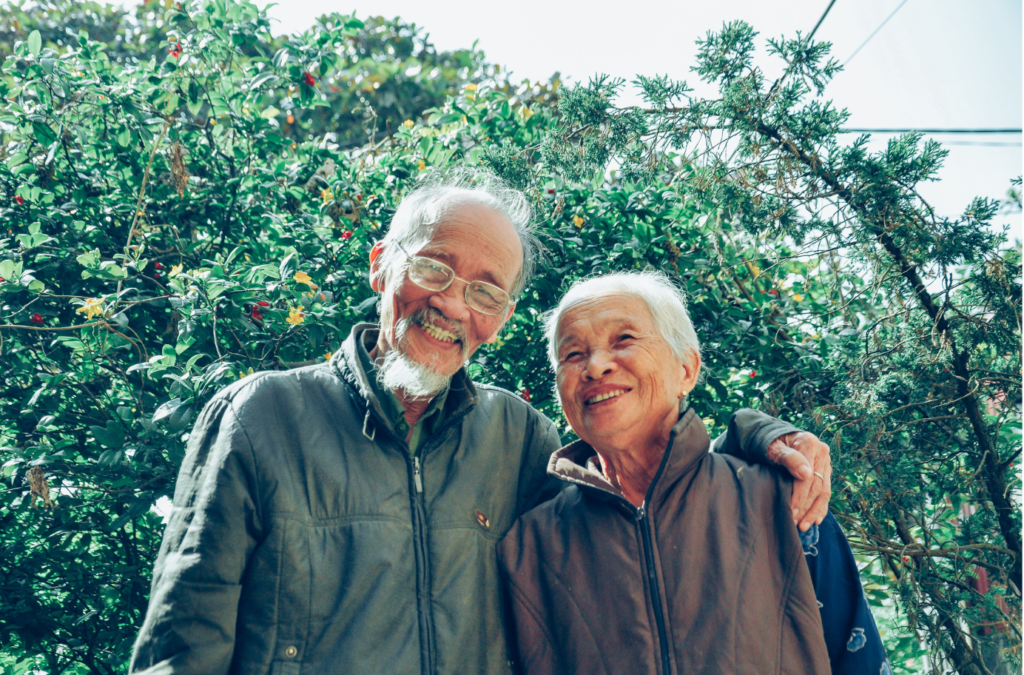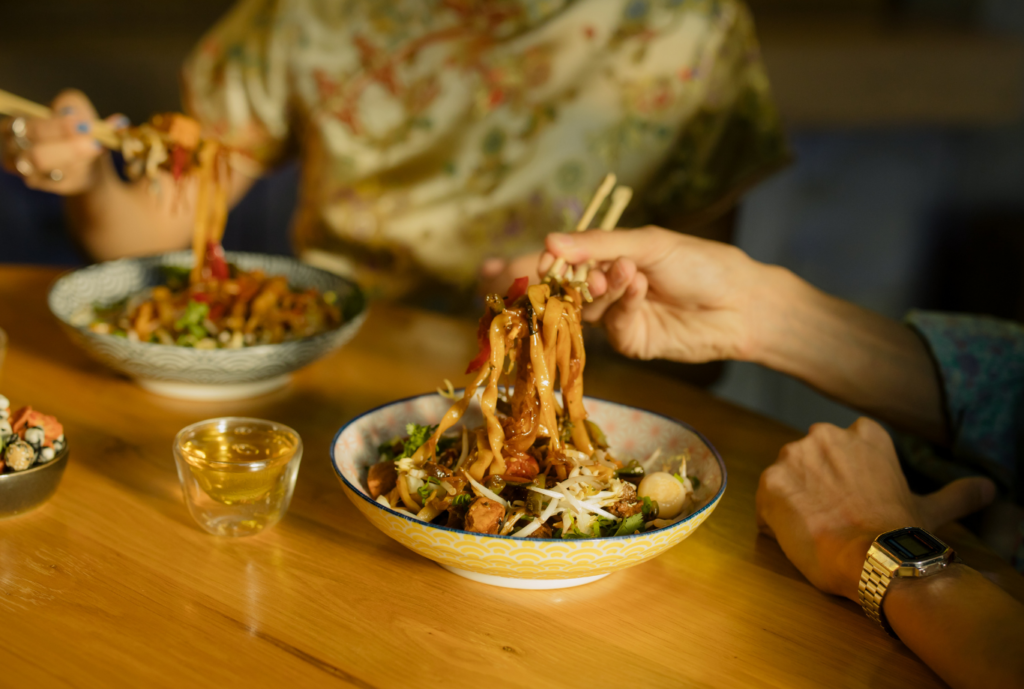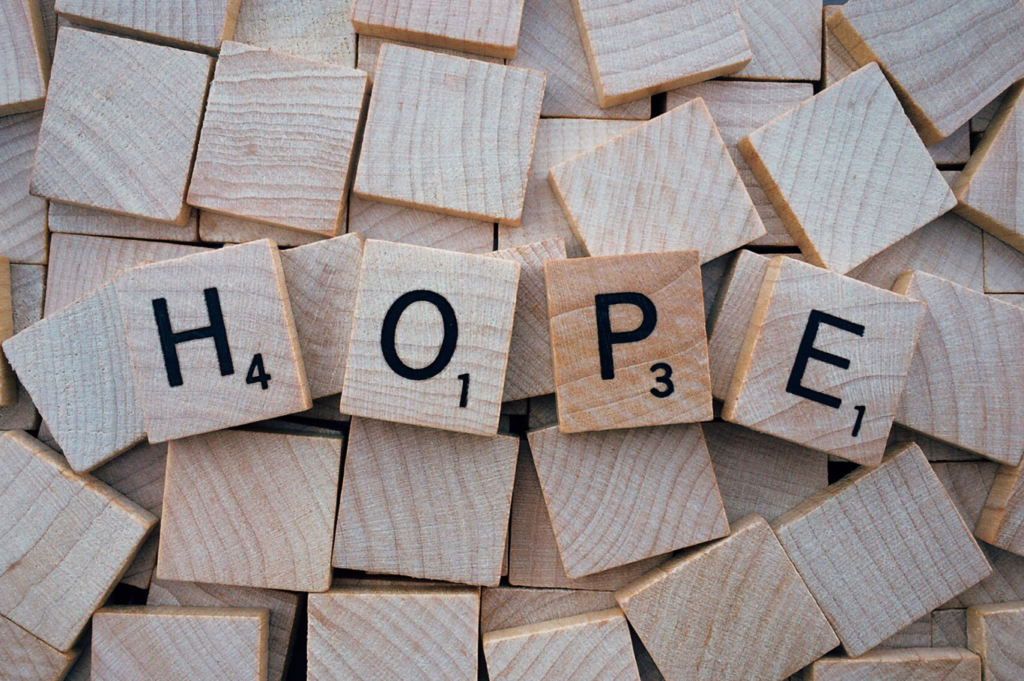It’s no secret that dysphagia can take an enormous toll on the body. If you have ever experienced the disorder yourself, you’ve probably been aware of this fact as you’ve struggled to keep on weight, sat through countless physical assessments, or struggled to swallow the foods you once cherished. And while you may have ample opportunity to talk about these physical impacts, how often have you had the chance to discuss, or have assessed, the mental or social toll dysphagia has taken on you? These invisible aspects of disorders often attract far less medical attention than the visible, physical ones – but this doesn’t mean that they are any less important. In fact, even the World Health Organization has stated that “there is no health without mental health” [1].
After speaking with three people living with dysphagia – Sophia, Hazel, and Derek* – about their experiences with the swallowing disorder, we are here to open up the conversation about dysphagia, mental health, and social well-being. If you are brand new to dysphagia, we hope their stories give you an understanding of the various effects that dysphagia may have on someone’s life. And if you or a loved one has been living with dysphagia for some time now, we hope their candid words of encouragement and experiences validate your feelings, bring you a sense of comfort, and leave you with the feeling that hope is around the corner.
Meet the interviewees
When we reached out on a Facebook forum asking for people to share their stories, we were immediately met with enthusiastic responses from Sophia (a retired teacher and reading specialist who was diagnosed with esophageal dysphagia in 2017), Hazel (a 35 year old architectural drafter who was diagnosed with dysphagia in 2021), and Derek (a 33 year old chef for a fine-dining French restaurant, who has experienced troubles with swallowing since a teenager). While each of their experiences with dysphagia has looked very different, all three were united in the hope that their stories can help others going through the same thing.
Dysphagia and Mental Health: “I felt alone, scared, and depressed. I felt angry”
Being diagnosed with dysphagia can trigger a wide range of emotions. A few that Sophia, Hazel, and Derek experienced included: confusion and anxiety from the uncertainty of their new situation, embarrassment and guilt from being unable to eat alongside friends in social situations, irritation as a side effect of malnutrition, and anger and grief from being unable to eat their favorite foods. For some, their dysphagia diagnosis took a toll on their self-esteem as well: “I didn’t recognize myself because I became so thin”, said Hazel, while Derek remembered that he “loomed” at his own body and was self-conscious of what others thought of him. Unfortunately, these feelings are not uncommon after a diagnosis of dysphagia: many individuals express a loss of enjoyment in life and depressed thoughts [2]. All of these mental changes can be overwhelming and consuming, especially when they are not spoken about, leaving patients to feel alone in trying to navigate these challenges. If any of this resonates with you or someone you know, there are some strategies that other patients have found useful in improving their mental health.
For example, all three interviewees expressed the importance of having open, genuine conversations with friends and family.
Taking the time to explain your dysphagia diagnosis, as well as your thoughts and feelings surrounding it, can establish a level of understanding and comfort with others. Developing this open communication can also reduce feelings of embarrassment, shame, or isolation.
As Sophia said, “You need a tribe of people who get what you are going through”. It may feel extremely difficult to open up about this topic, especially since most people don’t know what dysphagia is; to start, try talking to someone close to you who you find is a good and empathetic listener. If you are unsure of what to say, here is an article where someone with dysphagia tries to communicate what it’s like to not be able to swallow safely.

Another strategy to improve mental health is becoming engaged in your own meal planning and/or preparation. Following the meal guidelines set out by your clinician is important, and it’s recommended to consult your clinician before branching out to different foods. However, when asked, interviewees expressed that trying new foods and recipes boosted their mood and allowed them to regain enjoyment in eating again. In doing so, the interviewees said they could once again experience flavors and textures that they previously cherished. Don’t know where to start with exploring new foods? Try reading this short article with tips and tricks on how to spark joy with food that follows your texture-modified diet.
Dysphagia and Social Well-being: “My quality of life is impacted with every meal, every outing with family and friends, and every holiday dinner”
One change you may not have anticipated or expected after your diagnosis – but that may have hit you with full force – is the change to your social life.
“You have to eat as a human being and I cannot do that without preparation and a blender. I bring my meals to a restaurant or to a friend’s house. I have to apologize because I cannot eat their meals. If I indulge in a food I can’t really swallow, I start to choke, cough . . . and then I see their faces and they act worried and offer me water or worry that I have a disease I will give to them.” – Sophia

“I felt sad and embarrassed because I am not socializing while eating. I had to make sure I had everything that I needed for my [meals] like tissues, water, a table, a chair. It felt like a hassle for everyone. I’m the kind of person that intermingles eating food while socializing. I talk while I eat, I walk while I eat, we go for drives while eating but with dysphagia I have to pause everything to be able to feed myself.” – Hazel
The words above likely resonated with some of you. If you’ve found yourself avoiding eating with others to escape feelings of embarrassment, guilt, or being a burden, you’re not alone. Know that it does not always have to be this way; some of our interviewees have found what they call “social hacks” that they feel have greatly improved their social lives.
Sophia found that little acts of preparation can be extremely useful. These acts can include things like bringing thermoses to keep your own food hot for hours while out traveling, bringing smoothies with a small cooler, prepping your meal the night before an outing, or making sure the hotel you are staying at has a mini fridge and microwave. Small steps such as these can help social events run smoothly and boost your confidence when you’re with others.
Another tip that was strongly recommended by our group of interviewees was to join support groups if and when you are feeling any form of social isolation. Support groups – either online or in person – are a great opportunity to form new connections and create a social circle of people who are going through experiences similar to yours. These groups are a place where you can talk openly and honestly about your feelings without fear of judgment. In Sophia’s own words, “Facebook [support] groups really, really improved my life, and helped me to develop confidence in managing my condition”. If you don’t know where to look to join a group, we’ve provided a list at the end of this article.

Tips, Advice, and Words of Encouragement From Those Who Have Been There: “Keep your head up”
Dysphagia is tough. Living with dysphagia is tough. This was a unanimous sentiment. Having said that, all volunteers we spoke with said that their perspective on dysphagia has changed with time, for the better. They expressed that they learned to adapt to their new situation and now feel a greater sense of acceptance and dignity. For example, Derek expressed having “a light at the end of the tunnel”, Hazel tells herself that “[this] is only a chapter in my book”, and Sophia shared she “no longer feel[s] as despondent”.
When asked what they would say to someone facing dysphagia for the first time, interviewees had this to say: be patient, remain hopeful, and keep your head up. And while everyone’s experiences are unique, keep in mind that you are not alone, your feelings are valid, and most importantly, there is a community of people who have been there before or are currently living with dysphagia who can support you along every step of your journey.
Resources
- National Foundation of Swallowing Disorders Online Swallowing Support Group
- Head and Neck Cancer Society Support Group
- Dysphagia Outreach Project Facebook Page
- Online webinar recording: Gaining Greater Body Image When Living with Dysphagia
- Online Webinar recording: Living with Dysphagia
- IDDSI – International Dysphagia Diet Standardization Initiative
*All interviewees’ names have been changed in order to respect privacy and remain anonymous.
References:
[1] Herrman, H., Saxena, S., & Moodie, R. (2005). Promoting mental health : concepts,
emerging evidence, practice. World Health Organization.
[2] Farri, A., Accornero, A., & Burdese, C. (n.d.). Social importance of dysphagia: its impact on
diagnosis and therapy. Acta Otorhinolaryngologica Italica : Organo Ufficiale Della Società Italiana Di Otorinolaringologia e Chirurgia Cervico-Facciale, 27(2), 83–86.





